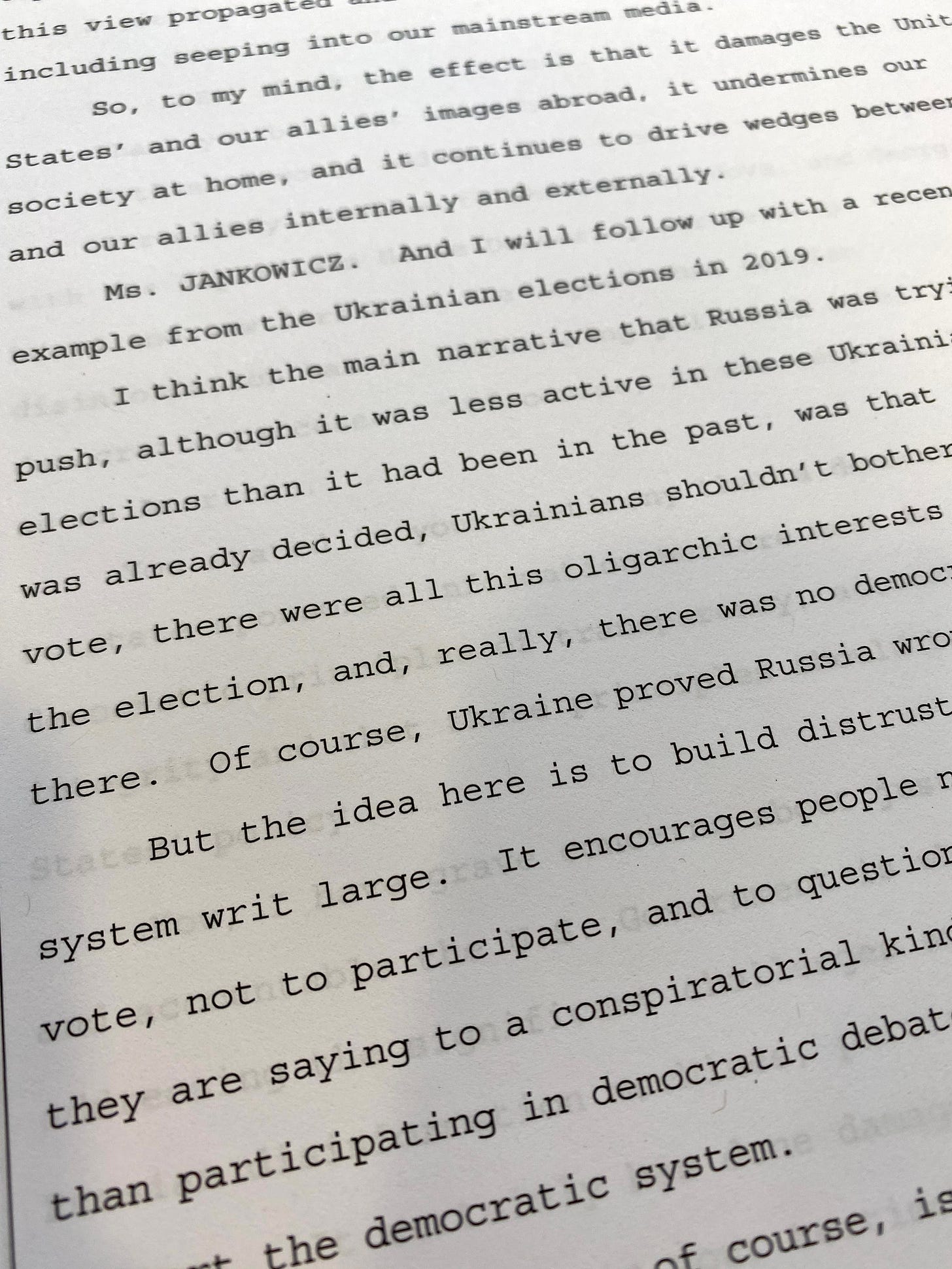on futile impeachments and the power of records
Trump may not be convicted, but the trial still matters
A short one today, dear readers, after a long, tiring week. Hope you are all staying safe and healthy.
In November 2019, I wandered a sub-basement of the US Capitol building, looking for the offices of the House Appropriations Committee. I had been there once before, in late June, when I was preparing to testify before the Subcommittee on State and Foreign Operations. But a few months later, I took the wrong elevator, or made a wrong turn, and I couldn’t find my way. A Capitol Police Officer, likely drawn to the obviously confused and stilted rhythm of my high-heeled steps on the marble floors, showed me to the office door. On our way, I made an inane joke about always getting lost in the building. “Don’t know how you do it!” I laughed.
Inside, the Committee Clerk had left the transcript of the July hearing at which I had testified in a huge binder on a conference room table along with a US House of Representatives Ticonderoga pencil and some post-it notes. I was there to read over my testimony before it was officially entered into the Congressional record.
I think I made a few small edits — correcting misspellings of foreign names, maybe —but what stayed with me was the overwhelming responsibility I felt as I read over my statements. At the time, the House was engrossed with President Trump’s first impeachment investigation. I had spent hours that week reading sworn depositions of diplomats and national security officials, and here were my own words, presented in that same unforgiving format as the documents I had been combing, though of far less import. I have never proofread something so carefully in my life.
I’ve been thinking about that day a lot since the January 6 Capitol insurrection. It was the last time I was in the Capitol, and naturally, when you imagine yourself in a crisis situation, you project your personal experience onto it. If the insurrection had happened in November 2019, I wouldn’t have known where to hide that day. I shudder to consider what the consequences of the insurrection would have been had the Capitol been as busy as it was pre-pandemic, bustling with staff, tourists, and business visitors. I have thought, too, about the police officer who helped me out: What was his experience on January 6 like? Is he okay?
This week, as I’ve watched President Trump’s second, seemingly futile impeachment trial unfold, I’ve thought more about the task at hand the last time I was in the Capitol, as well as the goal that such hearings, trials, and reports seek to achieve: record and preserve accuracy and truth. This impeachment trial is unlikely to result in a conviction. The Mueller Report was not a bombshell that brought down the Trump administration. The indictments of Russian operatives involved in influence campaigns will never result in a trial or jail time. Fact-checks often don’t reach the people most vulnerable to disinformation. But if nothing else, in all of these cases, there is a meticulously constructed record that will outlast this political moment. The thought of these minute-by-minute accounts, bolstered by social media posts, photos, and videos and preserved for future generations, has offered me a semblance of calm every time I see a Republican Senator put their own political future over our democracy, over truth.
As I repeated each of the three times I testified before Congress, disinformation knows no political party. Its ultimate victim is the democratic process. Senators who do not acknowledge the direct link between the Trump’s disinformation campaign and the antidemocratic violence on January 6 by voting to convict the former President are hastening that degredation. They are laundering and normalizing harmful lies. The Congressional Record — and the open source evidence, research, and reporting it stands on — will reflect that. History will judge.
further viewing/reading
I appeared in a Bloomberg documentary released this week on how social media fueled the Capitol insurrection.
Last month, I explored this theme in-depth for Foreign Affairs.


